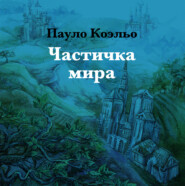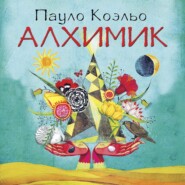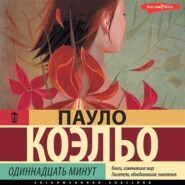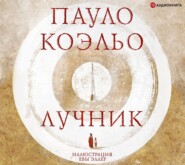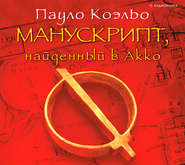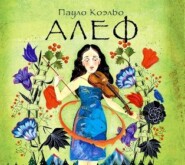По всем вопросам обращайтесь на: info@litportal.ru
(©) 2003-2024.
✖
Eleven Minutes
Автор
Год написания книги
2019
Настройки чтения
Размер шрифта
Высота строк
Поля
For the rest of the day, she couldn’t concentrate on her lessons, tormented by her own absurd behaviour, but, at the same time, relieved, because she knew that the boy had noticed her too, and that the pencil had just been an excuse to start a conversation, because when he came over to her, she had noticed that he already had a pen in his pocket. She waited for the next time, and during that night – and the nights that followed – she went over and over what she would say to him, until she found the right way to begin a story that would never end.
But there was no next time, for although they continued to walk to school together, with Maria sometimes a few steps ahead, clutching a pencil in her right hand, and at other times, walking slightly behind him so that she could gaze at him tenderly, he never said another word to her, and she had to content herself with loving and suffering in silence until the end of the school year.
During the interminable school holidays that followed, she woke up one morning to find that she had blood on her legs and was convinced she was going to die. She decided to leave a letter for the boy, telling him that he had been the great love of her life, and then she would go off into the bush and doubtless be killed by one of the two monsters that terrorised the country people round about: the werewolf and the mula-sem-cabeça (said to be a priest’s mistress transformed into a mule and doomed to wander the night). That way, her parents wouldn’t suffer too much over her death, for, although constantly beset by tragedies, the poor are always hopeful, and her parents would persuade themselves that she had been kidnapped by a wealthy, childless family, but would return one day, rich and famous, while the current (and eternal) love of her life would never forget her, torturing himself each day for not having spoken to her again.
She never did write that letter because her mother came into the room, saw the bloodstained sheets, smiled and said:
‘Now you’re a young woman.’
Maria wondered what the connection was between the blood on her legs and her becoming a young woman, but her mother wasn’t able to give her a satisfactory explanation: she just said that it was normal, and that, from now on, for four or five days a month, she would have to wear something like a doll’s pillow between her legs. Maria asked if men used some kind of tube to stop the blood going all over their trousers, and was told that this was something that only happened to women.
Maria complained to God, but, in the end, she got used to menstruating. She could not, however, get used to the boy’s absence, and kept blaming herself for her own stupidity in running away from the very thing she most wanted. The day before the new term began, she went to the only church in town and vowed to the image of St Anthony that she would take the initiative and speak to the boy.
The following day, she put on her smartest dress, one that her mother had made specially for the occasion, and set off to school, thanking God that the holidays had finally ended. But the boy did not appear. And so another agonising week passed, until she found out, through some schoolfriends, that he had left town.
‘He’s gone somewhere far away,’ someone said.
At that moment, Maria learned that certain things are lost forever. She learned too that there was a place called ‘somewhere far away’, that the world was vast and her own town very small, and that, in the end, the most interesting people always leave. She too would like to leave, but she was still very young. Nevertheless, looking at the dusty streets of the town where she lived, she decided that one day she would follow in the boy’s footsteps. On the nine Fridays that followed, she took communion, as was the custom in her religion, and asked the Virgin Mary to take her away from there.
She grieved for a while too and tried vainly to find out where the boy had gone, but no one knew where his parents had moved to. It began to seem to Maria that the world was too large, that love was something very dangerous and that the Virgin was a saint who inhabited a distant heaven and didn’t listen to the prayers of children.
Three years passed (#ulink_82e64a6c-e5c0-5b01-be97-ce4b7492eb5b); she learned geography and mathematics, she began following the soaps on TV; at school, she read her first erotic magazine; and she began writing a diary describing her humdrum life and her desire to experience first-hand the things they told her about in class – the ocean, snow, men in turbans, elegant women covered in jewels. But since no one can live on impossible dreams – especially when their mother is a seamstress and their father is hardly ever at home – she soon realised that she needed to take more notice of what was going on around her. She studied in order to get on in life, at the same time looking for someone with whom she could share her dreams of adventure. When she had just turned fifteen, she fell in love with a boy she had met in a Holy Week procession.
She did not repeat her childhood mistake: they talked, became friends and started going to the cinema and to parties together. She also noticed that, as had happened with the first boy, she associated love more with the person’s absence than with their presence: she would miss her boyfriend intensely, would spend hours imagining what they would talk about when next they met, and remembering every second they had spent together, trying to work out what she had done right and what she had done wrong. She liked to think of herself as an experienced young woman, who had already allowed one grand passion to slip from her grasp and who knew the pain that this caused, and now she was determined to fight with all her might for this man and for marriage, determined that he was the man for marriage, children and the house by the sea. She went to talk to her mother, who said imploringly:
‘But you’re still very young, my dear.’
‘You got married to my father when you were sixteen.’
Her mother preferred not to explain that this had been because of an unexpected pregnancy, and so she used the ‘things were different then’ argument and brought the matter to a close.
The following day, Maria and her boyfriend went for a walk in the countryside. They talked a little, and Maria asked if he wanted to travel, but, instead of answering the question, he took her in his arms and kissed her.
Her first kiss! How she had dreamed of that moment! And the landscape was special too – the herons flying, the sunset, the wild beauty of that semi-arid region, the sound of distant music. Maria pretended to draw back, but then she embraced him and repeated what she had seen so often on the cinema, in magazines and on TV: she rubbed her lips against his with some violence, moving her head from side to side, half-rhythmic, half-frenzied. Now and then, she felt the boy’s tongue touch her teeth and thought it felt delicious.
Then suddenly he stopped kissing her and asked:
‘Don’t you want to?’
What was she supposed to say? Did she want to? Of course she did! But a woman shouldn’t expose herself in that way, especially not to her future husband, otherwise he would spend the rest of his life suspecting that she might say ‘yes’ that easily to anything. She decided not to answer.
He kissed her again, this time with rather less enthusiasm. Again he stopped, red-faced, and Maria knew that something was very wrong, but she was afraid to ask what it was. She took his hand, and they walked back to the town together, talking about other things, as if nothing had happened.
That night – using the occasional difficult word because she was sure that, one day, everything she had written would be read by someone else, and because she was convinced that something very important had happened – she wrote in her diary:
When we meet someone and fall in love, we have a sense that the whole universe is on our side. I saw this happen today as the sun went down. And yet if something goes wrong, there is nothing left! No herons, no distant music, not even the taste of his lips. How is it possible for the beauty that was there only minutes before to vanish so quickly?
Life moves very fast. It rushes us from heaven to hell in a matter of seconds.
The following day, she talked to her girlfriends. They had all seen her going out for a walk with her future ‘betrothed’. After all, it is not enough just to have a great love in your life, you must make sure that everyone knows what a desirable person you are. They were dying to know what had happened, and Maria, very full of herself, said that the best bit was when his tongue touched her teeth. One of the other girls laughed.
‘Didn’t you open your mouth?’
Suddenly everything became clear – his question, his disappointment.
‘What for?’
‘To let him put his tongue inside.’
‘What difference does it make?’
‘It’s not something you can explain. That’s just how people kiss.’
There was much giggling, pretend pity and gleeful feelings of revenge amongst these girls who had never had a boy in love with them. Maria pretended not to care and she laughed too, although her soul was weeping. She secretly cursed the films she had seen in the cinema, from which she had learned to close her eyes, place her hand on the man’s head and move her head slightly to right and left, but which had failed to show the essential, most important thing. She made up the perfect excuse (I didn’t want to give myself at once, because I wasn’t sure, but now I realise that you are the love of my life) and waited for the next opportunity.
She didn’t see him until three days later, at a party in a local club, and he was holding the hand of a friend of hers, the one who had asked her about the kiss. She again pretended that she didn’t care, and survived until the end of the evening talking with her girlfriends about film stars and about other local boys, and pretending not to notice her friends’ occasional pitying looks. When she arrived home, though, she allowed her universe to crumble; she cried all night, suffered for the next eight months and concluded that love clearly wasn’t made for her and that she wasn’t made for love. She considered becoming a nun and devoting the rest of her life to a kind of love that didn’t hurt and didn’t leave painful scars on the heart – love for Jesus. At school, they learned about missionaries who went to Africa, and she decided that there lay an escape from her dull existence. She planned to enter a convent, she learned first aid (according to some teachers, a lot of people were dying in Africa), worked harder in her religious knowledge classes, and began to imagine herself as a modern-day saint, saving lives and visiting jungles inhabited by lions and tigers.
However, her fifteenth year brought with it not only the discovery that you were supposed to kiss with your mouth open, and that love is, above all, a cause of suffering. She discovered a third thing: masturbation. It happened almost by chance, as she was touching her genitals while waiting for her mother to come home. She used to do this when she was a child and she liked the feeling, until, one day, her father saw her and slapped her hard, without explaining why. She never forgot being hit like that, and she learned that she shouldn’t touch herself in front of other people; since she couldn’t do it in the middle of the street and she didn’t have a room of her own at home, she forgot all about the pleasurable sensation.
Until that afternoon, almost six months after the kiss. Her mother was late coming home, and she had nothing to do; her father had just gone out with a friend, and since there was nothing interesting on the TV, she began examining her own body, in the hope that she might find some unwanted hair which could immediately be tweezered out. To her surprise, she noticed a small gland above her vagina; she began touching it and found that she couldn’t stop; the feelings provoked were so strong and so pleasurable, and her whole body – particularly the part she was touching – became tense. After a while, she began to enter a kind of paradise, the feelings grew in intensity, until she noticed that she could no longer see or hear clearly, everything appeared to be tinged with yellow, and then she moaned with pleasure and had her first orgasm.
Orgasm!
It was like floating up to heaven and then parachuting slowly down to earth again. Her body was drenched in sweat, but she felt complete, fulfilled and full of energy. So that was what sex was! How wonderful! Not like in erotic magazines in which everyone talked about pleasure, but seemed to be grimacing in pain. And no need for a man, who liked a woman’s body, but had no time for her feelings. She could do it on her own! She did it again, this time imagining that a famous movie star was touching her, and once more she floated up to paradise and parachuted down again, feeling even more energised. Just as she was about to do it for a third time, her mother came home.
Maria talked to her girlfriends about her new discovery, not saying that she had only discovered it a few hours before. All of them – apart from two – knew what she was talking about, but none of them had ever dared to raise the subject. It was Maria’s turn to feel like a revolutionary, to be the leader of the group, inventing an absurd ‘secret confessions’ game, which involved asking everyone their favourite method of masturbation. She learned various different techniques, like lying under the covers in the height of summer (because, one of her friends assured her, sweating helped), using a goose feather to touch yourself there (she didn’t yet know what the place was called), letting a boy do it to you (Maria thought this unnecessary), using the spray in the bidet (she didn’t have one at home, but she would try it as soon as she visited one of her richer friends).
Anyway, once she had discovered masturbation and used a few of the techniques suggested by her friends, she abandoned forever the idea of a religious life. Masturbation gave her enormous pleasure, and yet the Church seemed to imply that sex was the greatest of sins. She heard various tales from those same girlfriends: masturbation gave you spots, could lead to madness or even pregnancy. Nevertheless, despite all these risks, she continued to pleasure herself at least once a week, usually on Wednesdays, when her father went out to play cards with his friends.
At the same time, she grew more and more insecure in her relationships with boys, and more and more determined to leave the place where she lived. She fell in love a third time and a fourth, she knew how to kiss now, and when she was alone with her boyfriends, she touched them and allowed herself to be touched, but something always went wrong, and the relationship would end precisely at the moment when she was sure that this was the person with whom she wanted to spend the rest of her life. After a long time, she came to the conclusion that men brought only pain, frustration, suffering and a sense of time dragging. One afternoon, watching a mother playing with her two-year-old son, she decided that she could still think about a husband, children and a house with a sea-view, but that she would never fall in love again, because love spoiled everything.
And so Maria’s adolescent years (#ulink_9db03893-b8db-55e3-ad01-8614d31a0082) passed. She grew prettier and prettier, and her sad, mysterious air brought her many suitors. She went out with one boy and with another, and she dreamed and suffered – despite her promise to herself never to fall in love again. On one such date, she lost her virginity on the back seat of a car; she and her boyfriend were touching each other with more than usual ardour, the boy got very worked up, and she, weary of being the only virgin amongst her group of friends, allowed him to penetrate her. Unlike masturbation, which took her up to heaven, this hurt her and caused a trickle of blood which left a stain on her skirt that took ages to wash out. There wasn’t the magical sensation of her first kiss – the herons flying, the sunset, the music…but she would rather not think about that.
She made love with the same boy a few more times, although she had to threaten him first, saying that if he didn’t, she would tell her father he had raped her. She used him as a way of learning, trying in every way she could to understand what pleasure there was in having sex with a partner.
She couldn’t understand it; masturbation was much less trouble and far more rewarding. But all the magazines, the TV programmes, books, girlfriends, everything, ABSOLUTELY EVERYTHING, said that a man was essential. Maria began to think that she must have some unspeakable sexual problem, so she concentrated still more on her studies and, for a while, forgot about that marvellous, murderous thing called Love.
From Maria’s diary, when she was seventeen:
My aim is to understand love. I know how alive I felt when I was in love, and I know that everything I have now, however interesting it might seem, doesn’t really excite me.
But love is a terrible thing: I’ve seen my girlfriends suffer and I don’t want the same thing to happen to me. They used to laugh at me and my innocence, but now they ask me how it is I manage men so well. I smile and say nothing, because I know that the remedy is worse than the pain: I simply don’t fall in love. With each day that passes, I see more clearly how fragile men are, how inconstant, insecure and surprising they are…a few of my girlfriends’ fathers have propositioned me, but I’ve always refused. At first, I was shocked, but now I think it’s just the way men are.
Although my aim is to understand love, and although I suffer to think of the people to whom I gave my heart, I see that those who touched my heart failed to arouse my body, and that those who aroused my body failed to touch my heart.
She turned nineteen (#ulink_82a596b0-7554-5cbc-ade4-7ae256168bc4), having finished secondary school, and found a job in a draper’s shop, where her boss promptly fell in love with her. By then, however, Maria knew how to use a man, without being used by him. She never let him touch her, although she was always very coquettish, conscious of the power of her beauty.
The power of beauty: what must the world be like for ugly women? She had some girlfriends who no one ever noticed at parties or who men were never interested in. Incredible though it might seem, these girls placed far greater value on the little love they received, suffered in silence when they were rejected and tried to face the future by looking for other things beyond getting all dressed up for someone else. They were more independent, took more interest in themselves, although, in Maria’s imagination, the world for them must seem unbearable.







